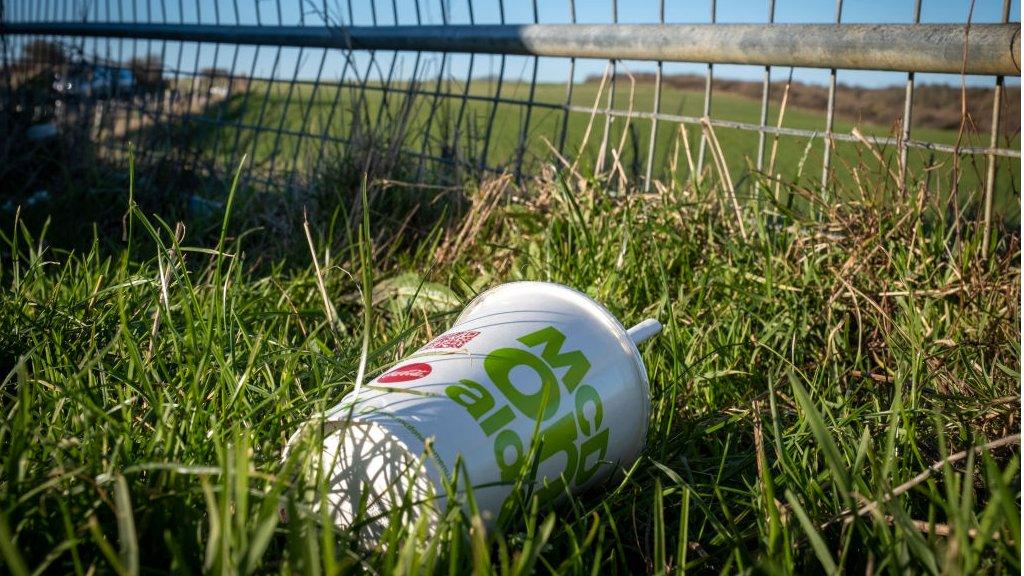Litter warning as ducklings mistake cigarette butts for food
- Published
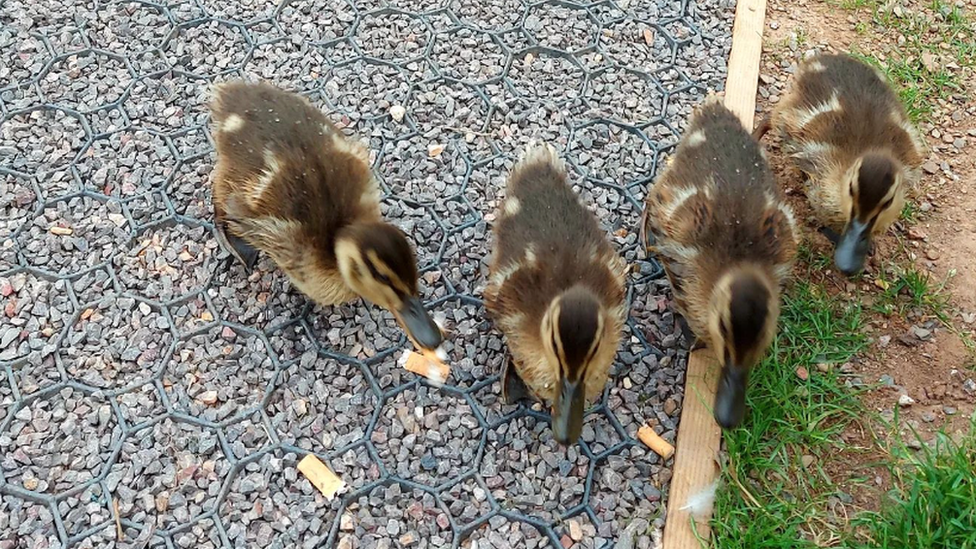
Cigarette butts, such as those left at Lamby lake in Cardiff, can be mistaken by wildlife for food
Campaigners have warned of the danger litter can pose to animals after ducklings were photographed pecking cigarette butts.
Linda Wick spotted the ducklings at Lamby Lake in Cardiff during her lunch break.
"I think they though the butts were some sort of food," the 58-year old from Llanedeyrn, Cardiff, said.
The RSPCA said litter was a real cause of concern and could have a devastating impact on pets and wildlife.
"I'm always picking the butts up to be honest, but that's the first time I've seen the ducklings pecking at them," Ms Wick, a volunteer litter picker, said.
"There are always cigarette butts around the benches. people just smoke and throw them on the floor. It's quite a common sight unfortunately."
Jemma Bere from charity Keep Wales Tidy warned cigarette ends are made of cellulose acetate - a type of plastic - and contain toxins which pollute our waters.
She warned they can be mistaken for food, which can be deadly for wildlife.
"Cigarette ends can remain in the environment for up to 15 years and can break down into tiny plastic pieces (called microplastics) which can never be truly recovered," she said.
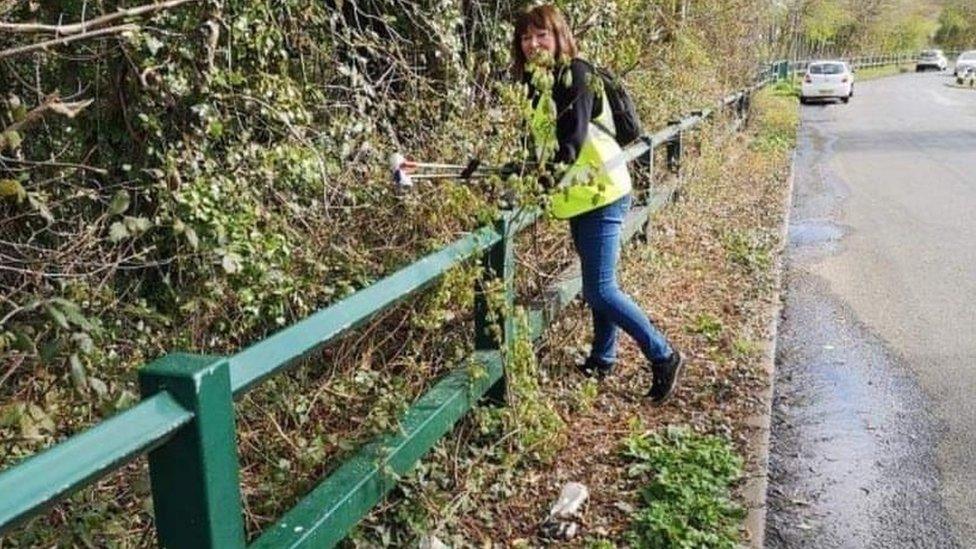
Linda Wick has been a volunteer litter picker for five years
RSPCA said the charity received almost 8,000 calls relating to litter between 2020 and 2021.
On average, this is around 11 incidents a day, but a spokesperson said they tend to spike during the summer months.
"As some pet owners go directly to vets, and many injured wild animals are never found, we suspect that the actual numbers of casualties is probably much higher than we currently know about," they added.
RSPCA officers are regularly called to deal with incidents involving animals which have become injured as a result of broken glass, sharp objects and plastics, face masks and even discarded children's toys.
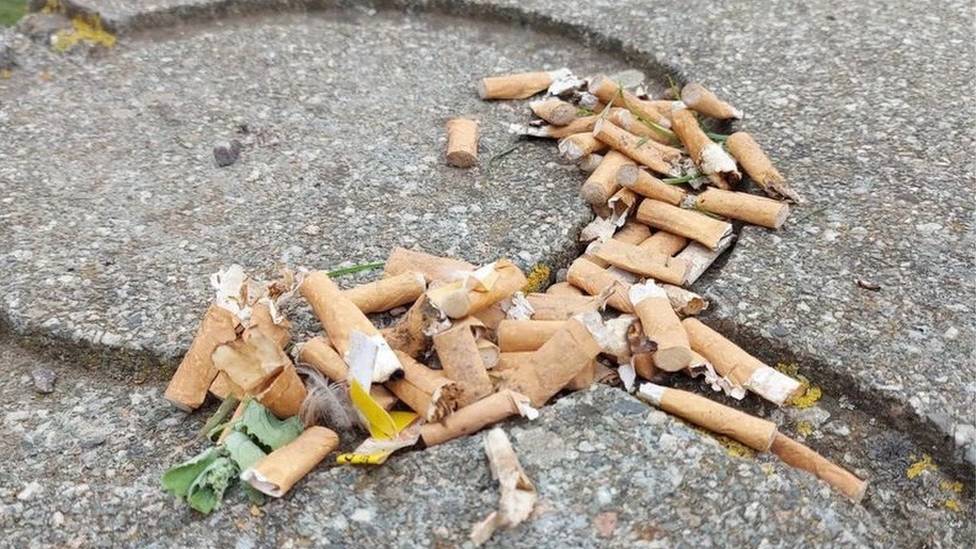
Keep Wales Tidy warned cigarette ends can remain in the environment for up to 15 years
Ms Wick has been volunteer litter picker for five years and goes out a couple of times a week, either near her home or at a beauty spot.
She said a duck was injured recently at Pentwyn lake in the east of Cardiff when a fishing hook pierced its face.
"That's a common sight unfortunately with the fishing that goes on," Ms Wick said.
"I think litter is a large problem that I don't think is going away either," she added. "Definitely since lockdown, with more people out and about in these areas. It really is getting worse."
Ms Bere, Policy and Research Manager for Keep Wales Tidy, warned that although cigarette ends are small, by law they still count as litter and can cause a lot of damage to our waters, soils and wildlife.
"They are very light and their small size makes them difficult and costly to tidy up so they are easily transported into waterways and the coast by wind and water," she said.
- Published18 May 2022
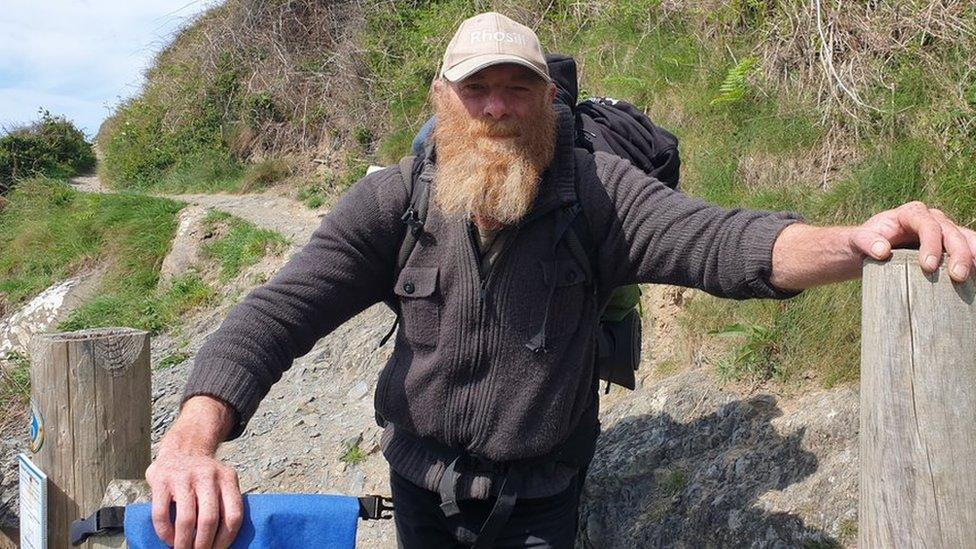
- Published7 April 2022
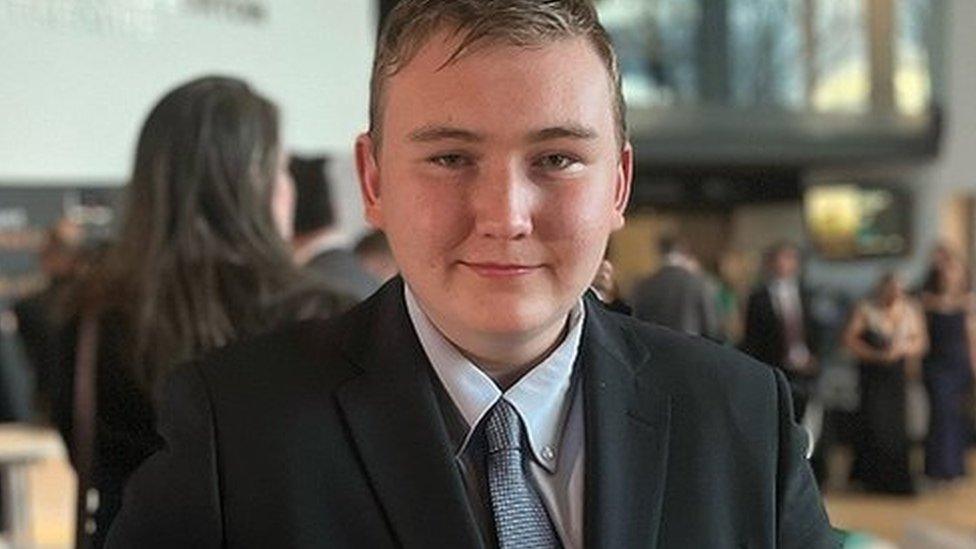
- Published4 April 2022
